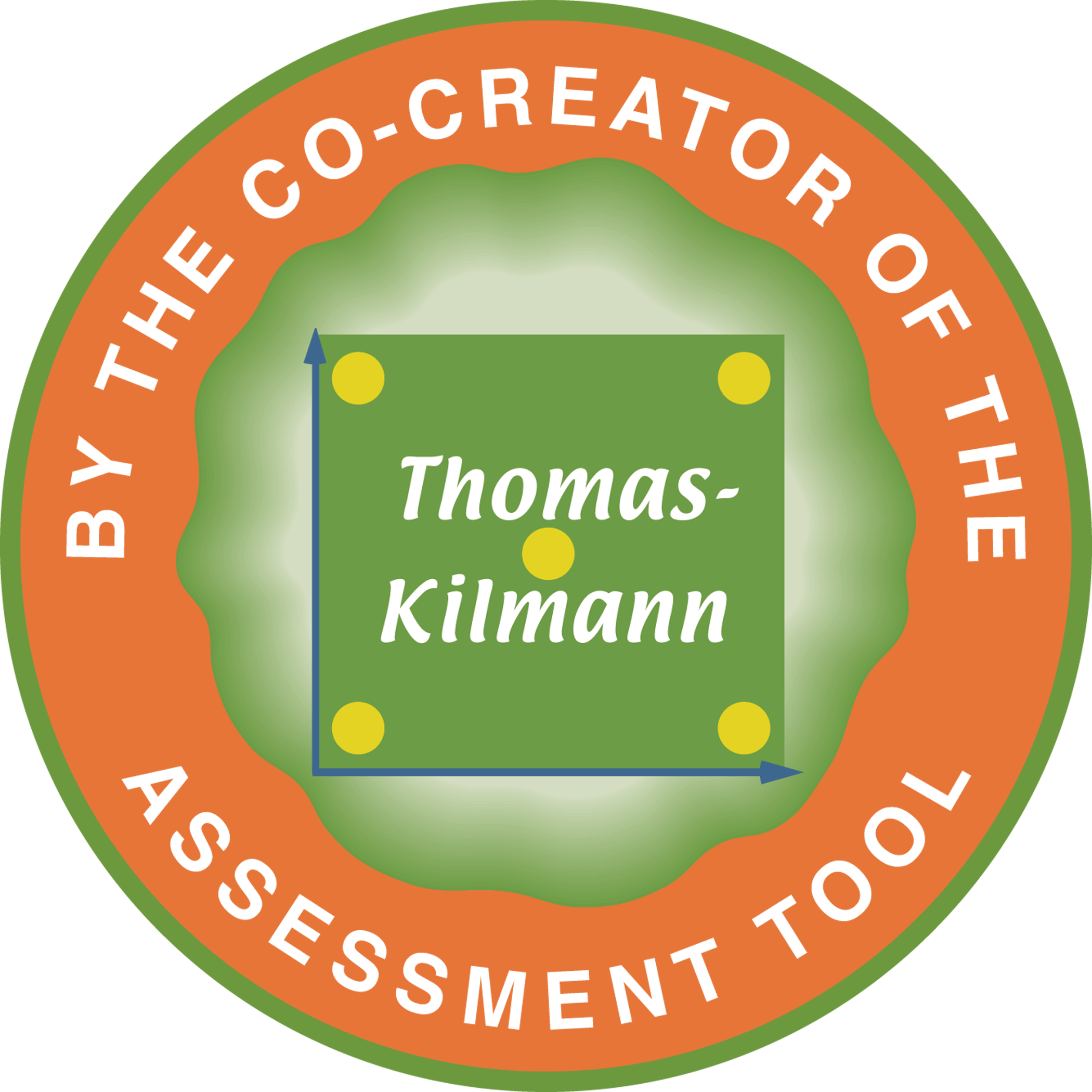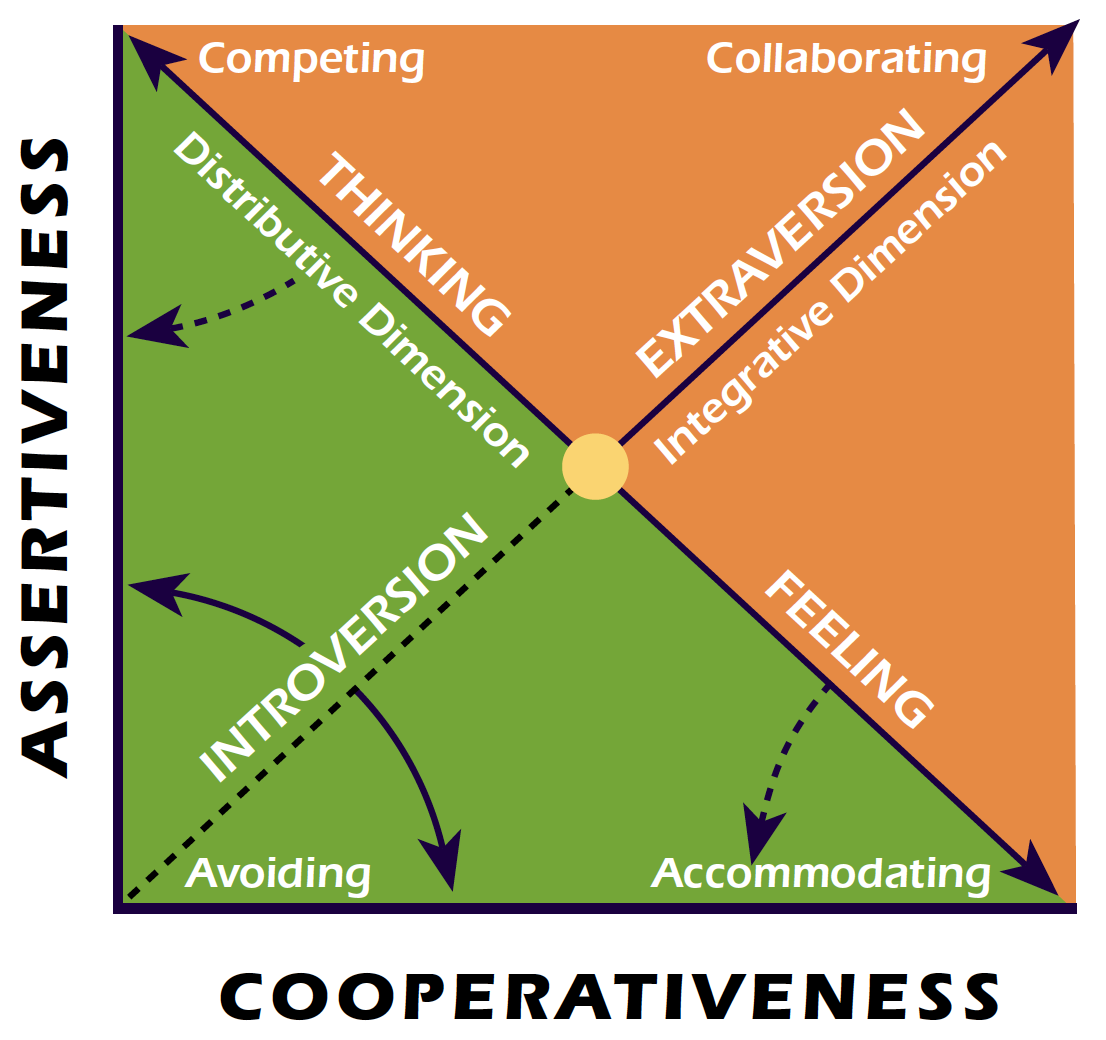05 Jan The Relationship Between the TKI and the MBTI Assessment Tools
Ralph H. Kilmann, co-author of the Thomas-Kilmann Instrument (TKI)
Many years ago (1975), I published a research study with Ken Thomas, wherein we correlated the Myers-Briggs Type Indicator (MBTI) with the Thomas-Kilmann Conflict Mode Instrument (TKI). We wanted to see if certain enduring personality traits would predispose people to use certain conflict-handling modes more than others.
We found that people who are extraverted are more likely to use collaborating, while people who are introverted are more inclined to use avoiding (as a statistically significant correlation, not as a one-to-one relationship). It seems that collaborating requires a little extra energy in interacting with others (sharing ideas and discussing concerns), while avoiding naturally involves an element of shyness or aloofness in an interpersonal situation.
In addition, we found that the thinking preference is related to competing, while the feeling function is related to accommodating (again, as a statistically significant correlation). Perhaps the thinking preference allows a person to keep an emotional distance from the other person: to pursue his own needs at the expense of the other. Meanwhile, the feeling person’s empathy for the other person might compel her to satisfy the other’s needs more than her own.
For decades, I’ve been making use of both assessment tools in training and consulting projects, so people can become more aware of their proclivities for using certain conflict modes too much and others too little — based on their MBTI preferences. With that awareness, people can then consciously compensate with their conflict-handling behavior: For example, an introvert can knowingly put out some extra effort in order to engage another in a collaborative discussion (when the necessary conditions for collaborating are evident). Similarly, a person who prefers feeling can knowingly assert her needs (when competing is called for), when her natural tendency would be to automatically accommodate the other person’s needs.
See the original 1975 article that reported the correlations between the MBTI and the TKI assessment tools.
Kilmann Diagnostics offers a series of eleven recorded online courses and nine assessment tools on the four timeless topics: conflict management, change management, consciousness, and transformation. By taking these courses and passing the Final Exams, you can earn your Certification in Conflict and Change Management with the Thomas-Kilmann Instrument (TKI). For the most up-to-date and comprehensive discussion of Dr. Kilmann’s theories and methods, see his 2021 Legacy Book: Creating a Quantum Organization: The Whys & Hows of Implementing Eight Tracks for Long-term success.





